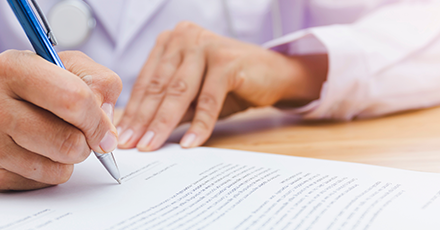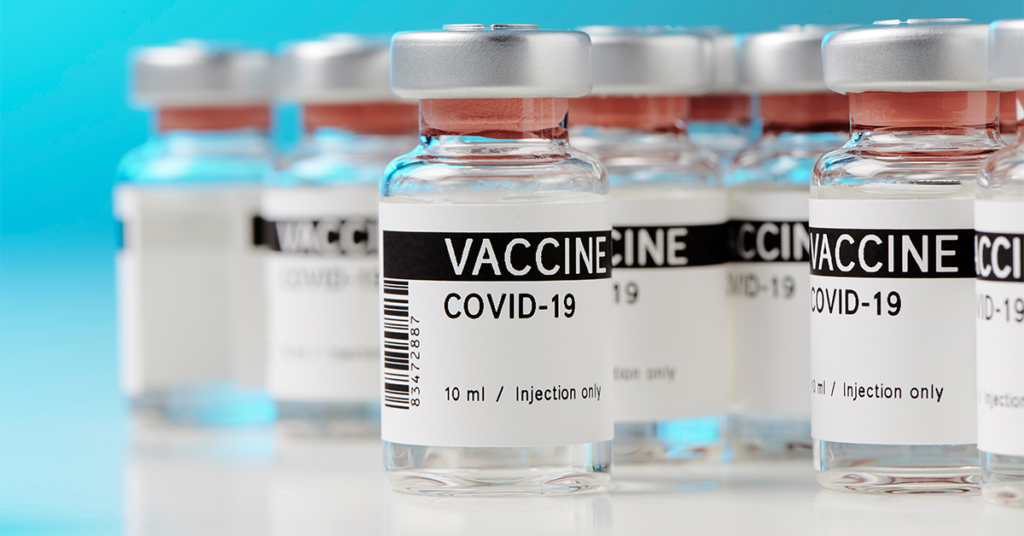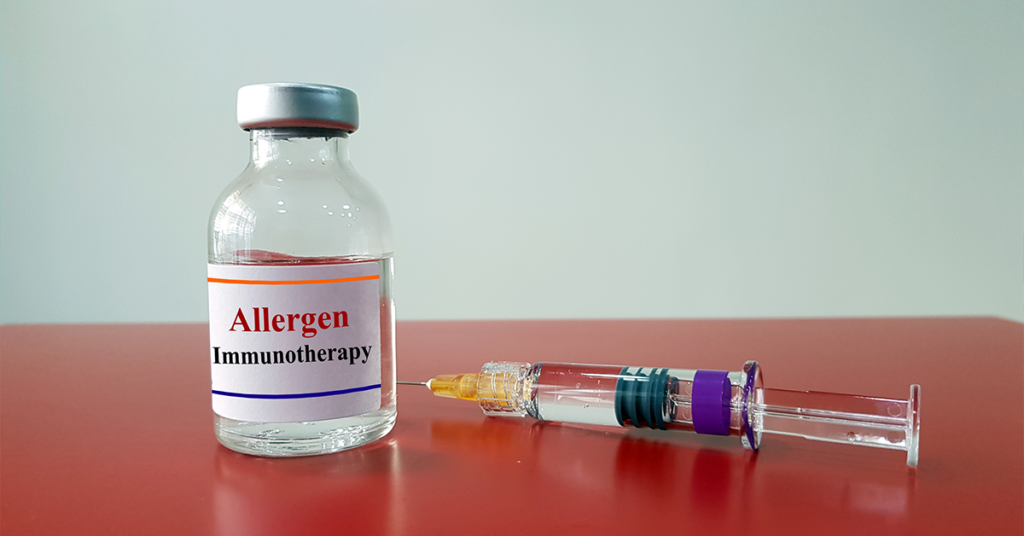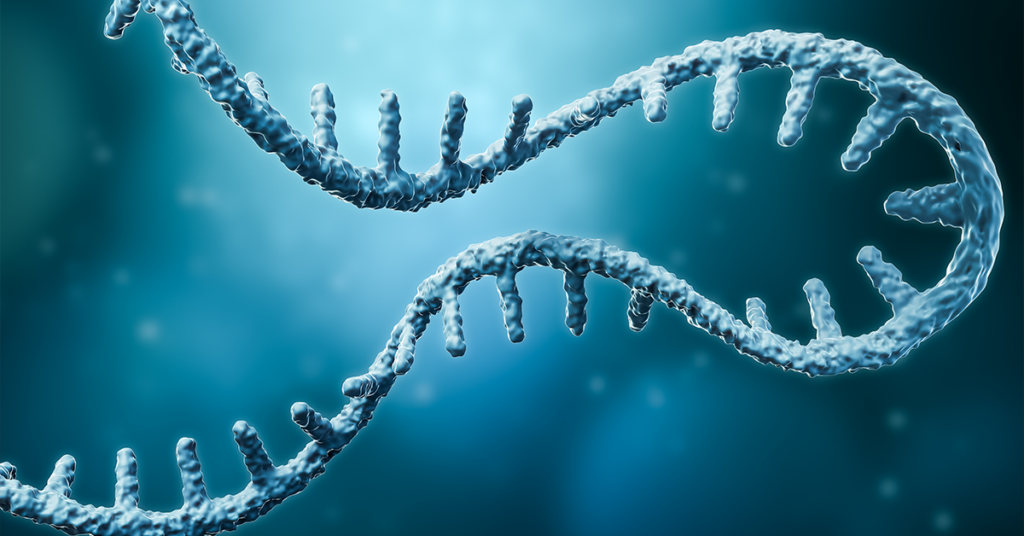
COVID-19 was an unprecedented event that disrupted the lives of many individuals around the world. Nearly a year later, life has started to gain some sense of normalcy due to the widespread availability and administration of COVID-19 vaccination. There are numerous vaccines now available through government and private distributors in an attempt to eliminate or curtail the adverse effects of the pandemic.
However, the introduction of the COVID-19 vaccine presents a new set of problems and questions. Given that this vaccine is the fastest one to pass through all clinical trials, are there any reactions that we may be unaware of? While not many people get vaccinated for diseases such as measles or mumps beyond childhood, allergy shots are administered regularly.
Should people receiving allergy immunotherapy be wary of the COVID-19 vaccine? More specifically, is there any reaction between the COVID-19 vaccine and allergy immunotherapy? This article will answer all your queries and concerns regarding allergy shots and the coronavirus vaccine. So, keep reading to find out!
What are Vaccines?
A vaccine stimulates your immune system to produce antibodies against a pathogen, so that the next time your body encounters it, the immune system can easily fight off the threat. However, since vaccines contain inactivated or weakened forms of pathogens, they do not cause disease. Vaccines are administered through injections, while some, such as the polio vaccine, are given orally.
Vaccines play a critical role in protecting us from disease and saving lives. By getting vaccinated, we are not only protecting ourselves but the people around us as well. Some individuals may not be healthy enough to get vaccinated, hence they depend on others to get vaccinated and reduce the spread of disease.
Vaccines work by stimulating the body’s immune system to build protection. By introducing pathogens or other forms of it, your immune system recognizes them as foreign. It produces antibodies, which are proteins made by the immune system to fight disease. Lastly, the immune system also has a memory function – the next time you are exposed to the pathogen, it will quickly produce antibodies and fight the disease before you get ill. Thus, vaccines are a safe and effective way to protect against diseases.
The World Health Organization (WHO) ensures that vaccines are safe for use through rigorous safety systems and international regulations. It also monitors and investigates any side effects that may arise.

COVID-19 Vaccines
Before we get into the specifics of the COVID-19 vaccine and allergy immunotherapy, it is important to understand the composition and varieties of the various COVID-19 vaccines.
Whole Virus
There are two main approaches to whole virus vaccines: live, attenuated, and inactivated vaccines. Examples of whole virus vaccines for COVID-19 are Sinopharm and Sinovac.
In live, attenuated vaccines, a weakened form of the virus is introduced inside the body. The virus can still replicate but is not strong enough to cause disease. In contrast, the virus cannot replicate in inactivated vaccines as its genetic material is destroyed. However, it can still trigger an immune response.
Whole virus vaccines have been used widely for other diseases, hence they use a well-established technology and pathways for regulatory approval. But there are still risks involved. Live, attenuated vaccines may end up causing disease in individuals with weak immune systems. Storage is also an issue; attenuated vaccines require cold storage which can be challenging to arrange in resource-constrained countries. While inactivated vaccines are safe for immunocompromised individuals, they also require cold storage.

Nucleic Acid (RNA or DNA)
Nucleic acid or mRNA vaccines against the coronavirus consist of mRNA molecules that code for the virus’ spike protein, an immunogenic factor. Once inside the body, the mRNA instructs the cells to produce the spike protein. The immune cells recognize it as a foreign antigen and mount an immune response. Vaccines include Pfizer-BioNTech and Moderna.
Such vaccines are easy and cheap to produce. The immune response is also strong because the antigen is produced inside our cells in large quantities. However, there are no RNA or DNA vaccines licensed for human use so far. The lack of licensing may be a hurdle in the regulatory process. Moreover, nucleic acid vaccines need to be kept in extremely low temperatures, -70°C or lower, because nucleic acid degrades very easily. Such measures are difficult to carry out in middle- and low-income countries due to a scarcity of specialized, cold storage equipment.
Viral Vector
A safe version of the virus known as the vector introduces the genetic sequence for viral antigens like the surface spike protein. Once infected, the body can develop immunity to the virus components. However, some individuals may already be exposed to the vector and have immunity against it, making the vaccine less effective. Vaccines include Oxford-AstraZeneca and Sputnik V.
Protein Subunit
Instead of introducing the actual virus, a few purified parts of its proteins are presented to the body, which allows the immune system to recognize it as foreign and mount an immune response. While side effects are minimized through this approach, the immune response may be comparatively weaker. This is why protein subunit vaccines often require adjuvants to boost the immune response. An existing example is the Hepatitis B vaccine.
Allergy Immunotherapy
Allergy shots or allergy immunotherapy is a way of desensitizing the immune system to different allergens over time. Each allergy shot contains a small amount of the allergen, which is enough to stimulate the immune system yet not trigger an allergic reaction. After some time, your doctor increases the dose to help your immune system build a tolerance to the allergens, causing the allergy symptoms to subside.
Allergy Shots and COVID-19 Vaccines: Do They Mix?
After reading about the COVID-19 vaccines, you might be wondering if delaying your allergy shots would be a good idea. But there is no need to worry. Individuals with allergies to various kinds of food, latex, insects, dust, pollen, and oral medications have been recommended to receive the vaccine, given that they follow the 15-minute observation period. This period entails the individual stays back at the vaccination site to account for any allergic reactions that may occur as a response to the vaccine.
As long as there are no severe or immediate allergic reactions to the vaccine components, there is no reason to stop yourself from getting vaccinated. For patients with asthma concerned about continuing their medication after the vaccine, there is no reported data to suggest that asthma medicines will react with the COVID-19 vaccine.
Typically, you will be asked a few questions about your allergy history at the vaccination center. If there is a prior history of anaphylaxis, your observation time may be increased from 15 to 30 minutes. Or you may be asked to take your doctor’s advice before getting the vaccine.
There is no evidence that these two react when it comes to allergy shots and the coronavirus vaccine. The COVID-19 vaccine works by stimulating the immune system to make antibodies work against the spike protein introduced to the body through various means. The spike protein mRNA enters your cells and uses its replication machinery to make several copies of itself. This gives your body enough time and exposure to mounting an immune response in time.
In contrast, allergy shots work by gradually introducing allergens to your body so that your immune system becomes desensitized over time. Hence, you can see that both these mechanisms are inherently different and do not overlap in any way.

How Long After the Vaccine Should You Get an Allergy Shot?
For individuals who recently received their COVID-19 vaccine and are on allergy immunotherapy, there should be a gap of a minimum of one week between their allergy shots and coronavirus vaccine. Again, this gap is not due to fear of any reaction but to be extra cautious.
Generally speaking, your allergy shots should not interfere with your vaccination. However, if allergens include non-vaccine components such as food or latex, waiting for 24 to 48 hours before getting your allergy shot is also sufficient.
The wait time ensures there is no confusion if the unlikely scenario of an allergic reaction after the allergy shot and coronavirus vaccine occurs. This gap will help elucidate the cause of your allergic response and may help take further precautions in the future to avoid any such complications from reoccurring.
Who Should Avoid the COVID-19 Vaccine?
While the vaccine has not been linked to any adverse allergic reactions so far, this is still a developing concern. Many factors need to be considered before rolling out a final verdict.
People with a rare history of reactions to mRNA vaccine components such as polysorbate or polyethylene glycol (PEG) should avoid the Moderna and Pfizer-BioNTech vaccines until an allergist has thoroughly evaluated them. They can opt for other vaccine types, such as the whole virus or protein subunit if available.
Furthermore, individuals who have received dermal fillers may develop swelling at or near the site of injection following the mRNA COVID-19 vaccine. But this occurs infrequently and resolves on its own. Individuals receiving the mRNA COVID-19 vaccine should expect local and systemic post-vaccination symptoms such as fever, chills, and body aches. But these are expected side effects of the vaccine, not allergic reactions.
If you have experienced an immediate reaction to a vaccine in the past, you can still go for the COVID-19 vaccine. However, it is better to consult with a doctor about the possible risks and benefits involved as a precautionary measure.
Individuals who experienced allergic symptoms within the first 4 hours after the first dose, such as wheezing, hypotension, swelling, or hives, should be further evaluated before getting the second dose.
Or, if they want to take an allergy test before the vaccination, they can talk to an allergist. But tests for PEG are not recommended unless there is a prior history of an allergic reaction to PEG or other injectable medicines.
See Also: How Federal Relief Affected Healthcare Revenues: Insights Into COVID-19 Led Losses
The Final Word
With COVID-19 vaccinations becoming mandatory to return to normal functioning, it has become imperative that we vaccinate ourselves. However, if you are currently undergoing allergy immunotherapy and are concerned about possible reactions after getting the COVID-19 vaccine, consult a professional.
The COVID-19 vaccine and allergy immunotherapy do not interfere as these are two fundamentally different processes. Neither does the COVID-19 vaccine trigger allergic reactions if you have a prior history unless you are allergic to vaccine components such as PEG. Thus, if you are concerned, then you can consult with your healthcare provider before getting vaccinated. But other than that, there is no reason why you should not get your allergy shots after the coronavirus vaccination.






No comment yet, add your voice below!